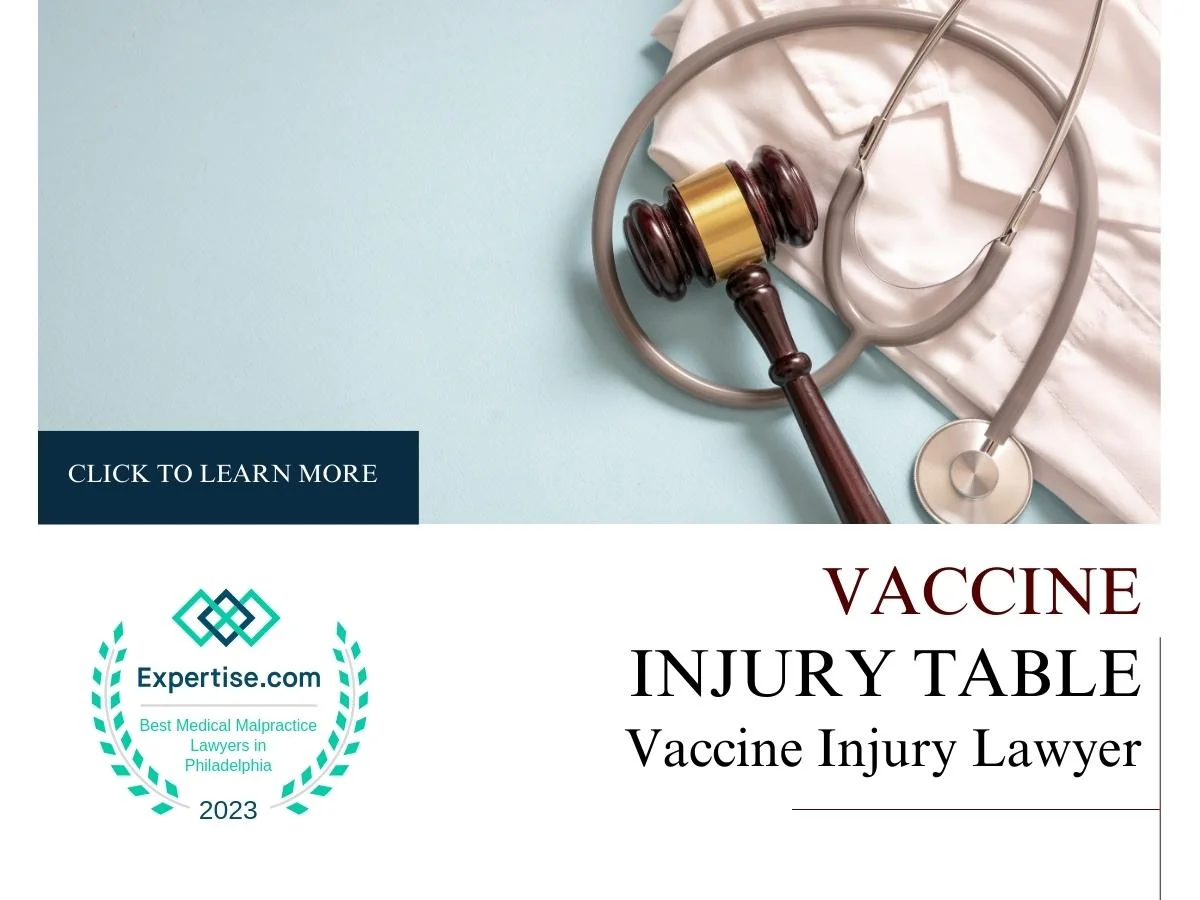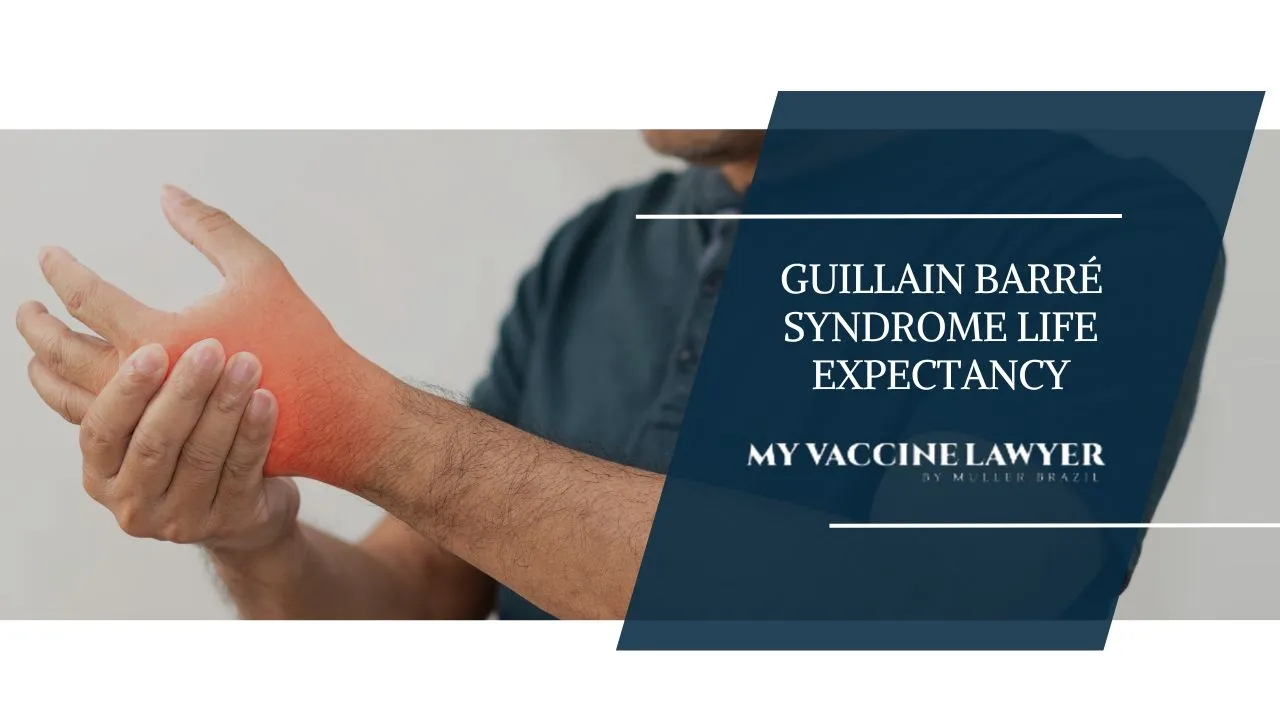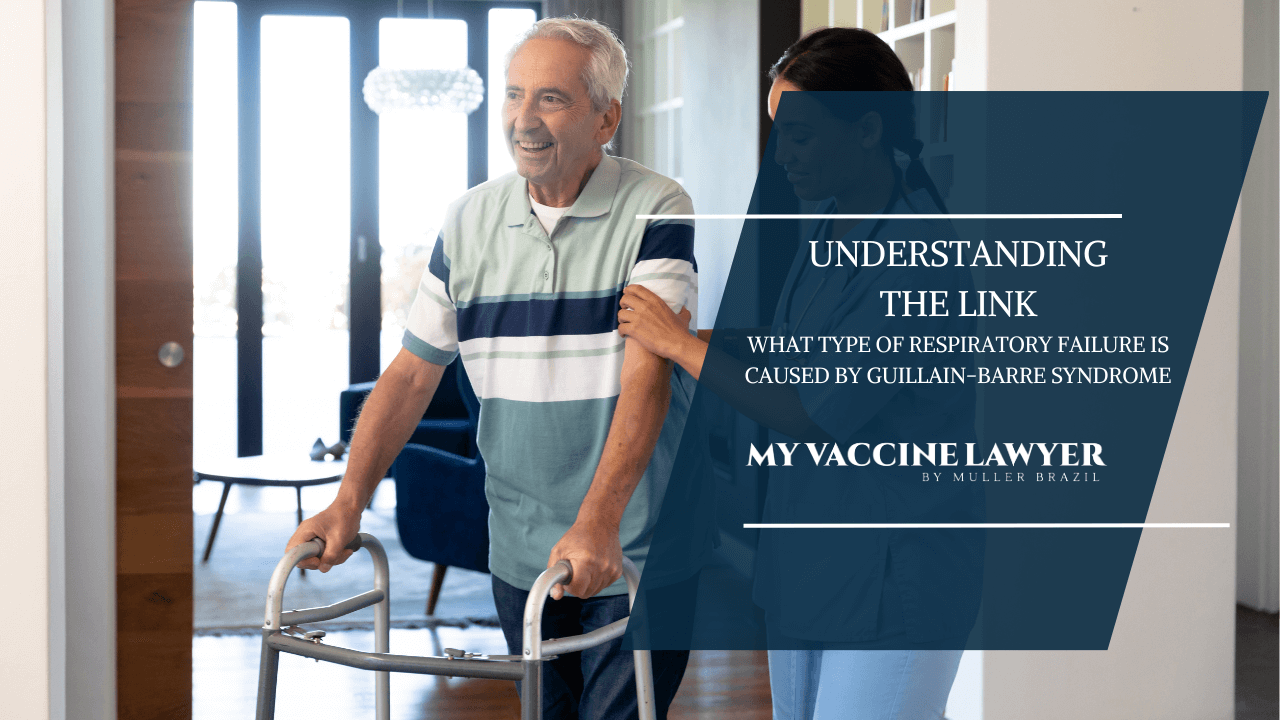SIRVA & GBS: Navigating Vaccine Injury Claims
For anyone who has experienced SIRVA (Shoulder Injury Resulting from Vaccine Administration) or Guillain-Barré Syndrome (GBS) after a vaccination,...
8 min read
Vaccine Injury Law Resources / Guillain-Barré Syndrome / GBS and Respiratory Failure: Identifying the Link
 Max Muller
:
Mar 7, 2024 12:00:00 PM
Max Muller
:
Mar 7, 2024 12:00:00 PM
Guillain-Barre Syndrome (GBS) can cause serious breathing problems, which might require machines to help patients breathe. This condition affects a few people and can happen after certain vaccines, though rare.
This article talks about how GBS leads to breathing issues, the dangers involved, and how to spot and treat these problems early, especially for those with a vaccine injury.
Key respiratory muscles, such as the diaphragm and intercostal muscles, may weaken with Guillain-Barre Syndrome, leading to respiratory failure. This neuromuscular respiratory failure is caused by progressively weakening inspiratory and expiratory muscles, which make breathing difficult and can lead to acute respiratory failure.
Some key points about respiratory dysfunction in Guillain-Barre Syndrome:
About 30% of patients with GBS are admitted to the Intensive Care Unit (ICU) and require invasive mechanical ventilation due to impending respiratory failure. This severe weakness in the respiratory system contributes to increased health issues and even death, affecting the long-term functional prognosis of patients with Guillain-Barre Syndrome.
For those with Guillain-Barre Syndrome, monitoring certain signs can be crucial in predicting whether they might need help breathing with a ventilator. These signs include the rapid onset of muscle weakness and problems with muscles used for swallowing and speech. Additionally, the fast progression of the disease and the time it takes from when symptoms start to hospital admission are key factors in foreseeing breathing difficulties in these patients.
Guillain-Barré Syndrome raises concerns about ventilatory failure and bulbar dysfunction. It is caused by the progressive weakness of the inspiratory and expiratory muscles, which complicates adequate ventilation without assistance. An ineffective cough and a rapid decline in vital capacity in GBS patients often signal respiratory failure.
The respiratory dysfunction that leads to ventilatory failure contributes to:
Therefore, patients in the ICU receiving ventilation, especially mechanically ventilated patients, require close monitoring. If the patient’s condition deteriorates, medical professionals must be prepared to provide immediate respiratory support, including mechanical ventilation.
Early recognition of the signs of ventilatory failure is key to preventing further complications such as aspiration pneumonia or a pulmonary embolism.
You may ask how muscle paralysis impacts lung function in Guillain-Barre Syndrome. The paralysis of respiratory muscles makes it difficult for the chest to expand during breathing, preventing the lungs from filling adequately with air. This decline in lung function is directly linked to paralysis of the respiratory muscles, which can cause issues with coughing effectively and ventilating the lungs.
An ineffective cough due to muscle paralysis increases the risks of complications such as aspiration pneumonia and atelectasis in patients with Guillain-Barre Syndrome. Severe weakness in the muscles can heighten the probability of GBS patients needing mechanical ventilation to assist their breathing.
This is where electrophysiological tests such as phrenic nerve conduction studies and diaphragmatic electromyography come into play. These tests can predict respiratory complications by identifying abnormalities associated with respiratory failure in GBS patients early.
.jpg?width=386&height=217&name=Recognizing%20Symptoms%20Early%20The%20Clinical%20Presentation%20of%20CRPS%20(3).jpg)
Timely medical intervention in Guillain-Barre Syndrome hinges on the early detection of respiratory failure symptoms. Symptoms may include:
For patients with Guillain-Barre Syndrome, it’s vital to identify symptoms like difficulty breathing, an elevated heart rate, and problems with walking or climbing stairs. The first two to four weeks following symptom onset are critical for medical intervention.
Factors that predict the need for invasive mechanical ventilation in GBS patients include:
Healthcare professionals also look at the following indicators of imminent respiratory arrest in GBS patients:
Medical professionals employ a blend of electrophysiological tests, clinical indicators, and quantitative measures to diagnose respiratory failure in GBS patients. Phrenic nerve conduction studies and diaphragmatic electromyography are non-invasive electrophysiological tests that predict respiratory failure in GBS patients.
Clinical parameters such as rapidly progressive motor weakness, involvement of peripheral limb and axial muscles, and bulbar muscle weakness are key indicators of impending respiratory failure in GBS patients. Careful monitoring is required to identify the need for respiratory support.
Quantitative measurements are important for diagnosing respiratory failure and determining the correct timing for initiating mechanical ventilation in GBS patients. These include a vital capacity of less than 60% of predicted or below 20 ml/kg and maximum inspiratory pressure below 30 cm H2O.
Early prediction, clinical indicators, and quantitative measures together form the current diagnostic criteria for diagnosing respiratory failure in GBS patients, which helps them start the right treatments sooner.
Guillain-Barre Syndrome (GBS) is not a one-size-fits-all term. It includes various types of neurological disorders such as chronic inflammatory demyelinating polyneuropathy (CIDP), acute motor axonal neuropathy (AMAN), and Miller-Fisher Syndrome. GBS occurs worldwide with an incidence rate of 1–2 cases per 100,000 people annually, yet frequency differs by geographic region.
The highest age-standardized frequency rates of GBS have been observed in High-income Asia Pacific and North America, with Japan recording the highest in 2019. This could potentially be due to specific infections and genetic or environmental factors.
The different types of Guillain-Barré Syndrome (GBS) include:
These types may lead to respiratory dysfunction, highlighting the need for awareness and understanding of this complex syndrome and its clinical associations.
Guillain-Barre Syndrome has a multitude of causes and risk factors. Some of the main ones include:
A worldwide increase of 6.4% in GBS has been reported since 1990, with the highest standardized rates in regions like high-income Asia Pacific and North America. The global burden is higher in males, pointing to potential risk factors that need further research.
Take Control of Your Injury Today
The relationship between Guillain-Barre Syndrome and vaccines is a topic of ongoing research and discussion. Vaccination can very rarely lead to Guillain-Barre Syndrome (GBS), with incidents especially noted in childhood and influenza vaccines, although the risk is much lower compared to contracting GBS from an illness like the flu.
The Johnson & Johnson COVID-19 vaccine has been linked with about 100 suspected cases of GBS out of 12.8 million doses in the U.S., while mRNA vaccines from Pfizer and Moderna have not been linked to GBS currently. Due to reports of GBS cases, the FDA has mandated a warning label for the Johnson & Johnson COVID-19 vaccine to inform the public of a potential increased risk.
Multiple studies assessing the link between influenza vaccines and GBS present varying results, which adds to the complexity of making clear determinations about vaccine-related injury claims.
Despite the daunting nature of Guillain-Barre Syndrome and its related respiratory failure, effective treatment options exist. Plasma exchange and intravenous immunoglobulins are specific treatments that can manage respiratory failure in patients with Guillain-Barré Syndrome.
Plasma exchange can:
However, while plasma exchange therapy shows a higher chance of complete recovery of muscle strength, it presents a small but significant risk of relapse during the first year after treatment. This highlights the importance of continued monitoring and follow-up in GBS patients.
Respiratory failure in Guillain-Barre Syndrome significantly increases morbidity and mortality, affecting long-term functional prognosis. A considerable number of GBS patients suffer from:
These are often related to respiratory issues during the acute phase.
Pulmonary function in GBS patients can improve steadily, with the potential for almost complete recovery without any residual impairment after 2 years. However, to prevent further complications, GBS patients need to monitor their symptoms closely and seek early intervention when necessary.
Effective treatment and recovery from GBS-related respiratory failure require:
This is important to avoid overuse and to prevent further weakening, thus contributing to better long-term outcomes for GBS patients.
Legal aid is available to those who have experienced adverse effects following vaccination, such as Guillain-Barre syndrome. Vaccine injury lawyers, like My Vaccine Lawyer, specialize in representing individuals who have suffered adverse effects post-vaccination, sometimes providing services free of charge to the claimants.
Claims for vaccine-induced Guillain-Barre syndrome are filed in accordance with procedures defined by the Vaccine Injury Table as part of the Vaccine Injury Compensation Program (VICP). Guillain-Barre syndrome may be eligible for compensation under the VICP if symptoms manifest within an appropriate time frame after vaccination.
Data from the Vaccine Safety Datalink Project and population-based surveillance during the 2009-2010 H1N1 vaccination campaign play a vital role in evaluating vaccine injury claims for GBS. This data is invaluable in making clear determinations about vaccine-related injury claims.
Guillain-Barre Syndrome is a complex neurological disorder with numerous manifestations and potential complications, including respiratory failure. This blog post has highlighted the intricate relationship between GBS and respiratory failure, the symptoms to watch out for, diagnosis techniques, and treatment options.
Understanding the various forms of GBS, the causes, risk factors, and the role of vaccines is vital for managing this condition. While GBS can be a daunting diagnosis, with the right knowledge and timely interventions, it can be managed effectively.
Remember, knowledge is power. Stay informed, seek early interventions, and don’t hesitate to ask for help when needed. Here’s to a future with more awareness, better treatment options, and improved quality of life for all GBS patients.
Guillain-Barre Syndrome typically causes type 2 respiratory failure, characterized by inadequate ventilation leading to carbon dioxide retention and respiratory acidosis.
Yes, Guillain-Barré syndrome can impair ventilation, leading to acute respiratory failure and the potential need for mechanical ventilation, affecting up to 30% of patients.
In severe cases, Guillain-Barré syndrome can lead to near-total paralysis and difficulty breathing, potentially becoming life-threatening. Individuals with GBS must receive prompt treatment and close monitoring.
The predictors of respiratory failure in GBS patients include cranial nerve involvement, disability grade on admission, rapidly progressive motor weakness, absence of deep tendon reflexes, and autonomic dysfunction. These factors can help identify patients at risk of developing respiratory failure.
Type 2 respiratory failure occurs when the respiratory system cannot sufficiently remove carbon dioxide from the body, leading to hypercapnia. This can result in respiratory acidosis.
Guillain-Barre Syndrome can be triggered by infections such as Campylobacter jejuni and, in rare cases, vaccinations. These factors can lead to the development of the syndrome.
Mr. Muller currently devotes the majority of his law practice to aggressively fighting for the victims of unsafe drug and medical device injuries, as well as vaccine injuries and vaccine reactions involving the flu shot, TDaP/DTaP vaccine, and more. He has handled hundreds of SIRVA injury cases (shoulder injury related to vaccine administration), especially those involving bursitis, tendonitis, frozen shoulder, and rotator cuff tears. Mr. Muller also handles cases where vaccines caused serious nerve injuries such as Guillain-Barre Syndrome. Mr. Muller has recovered millions of dollars in compensation for his clients in the Vaccine Injury Compensation Program.

For anyone who has experienced SIRVA (Shoulder Injury Resulting from Vaccine Administration) or Guillain-Barré Syndrome (GBS) after a vaccination,...

In this blog post, we’ll explore what GBS is, its impact on Guillain Barré Syndrome life expectancy, treatment options, and tips for living with this...

Yes, the flu shot is administered intramuscularly in most cases, typically in the deltoid muscle of the upper arm.
